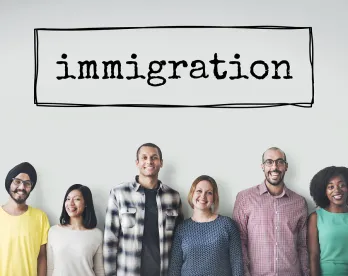The New York City Commission on Human Rights has issued new enforcement guidance on discrimination based on actual or perceived national origin or immigration status in employment, as well as in housing and public accommodations. While enforcement guidance does not have the same force of law as a statute or formal regulations, it provides significant insight into how the Commission would evaluate complaints of discrimination under the New York City Human Rights Law (NYCHRL) based on these categories.
With regard to employment, the enforcement guidance emphasizes that while employers have an obligation to follow all legal requirements for verifying work authorization upon hiring, once an employer has decided to hire an individual, that individual enjoys the same protections under the NYCHRL as any other employee, regardless of immigration status or work authorization. Specifically, the guidance acknowledges that federal law may require differential treatment of individuals based on immigration status to comply with the Immigration Reform and Control Act. However, “[o]utside of this limited circumstance, it is a violation of the NYCHRL for employers to discriminate among work-authorized individuals—including, but not limited to, citizens, permanent residents, refugees, asylees, and those granted lawful temporary status—unless required or explicitly permitted by law.”
Examples of potential hiring violations noted in the guidance include:
-
asking applicants questions related to work authorization in an inconsistent manner based on actual or perceived immigration status or national origin (e.g., asking an applicant who has an accent whether they have work authorization but not asking the same question of someone who does not have an accent);
-
asking to see work authorization documents before an individual accepts a job offer;
-
refusing to accept specific documents or requiring specific documents beyond what is required to establish work authorization under federal law, even if the policy is applied on a “neutral” basis (e.g., demanding that all new hires show a social security card when other documents would satisfy legal requirements); or
-
requiring an employee to re-verify their work authorization status unless required to do so by law (e.g., demanding updated verification documents upon promotion, transfer, or return from an authorized leave of absence).
The guidance further notes that an employer’s receipt of an “Employee Correction Request Notice” (commonly referred to as a “No-Match Letter”) from the Social Security Administration (SSA) advising that reported information about an employee’s name and/or Social Security number does not match the name or number in the SSA’s records, by itself may not be used as a basis for taking adverse action against an employee or for re-verifying the employee’s work authorization, as mismatches can be caused by such things as clerical errors and name changes.
The guidance also provides examples of other types of conduct by employers or their employees that could be considered unlawful discrimination or harassment based on national origin and immigration status under the NYCHRL, including:
-
threatening to call immigration authorities or law enforcement on undocumented workers as a means to force employees to work in unsafe, unequal, or unlawful conditions or otherwise based on a discriminatory or retaliatory motive;
-
telling an employee that they do not have the same rights to workplace benefits or accommodations because they are undocumented;
-
prioritizing employees of a certain national origin over other workers with regard to terms and conditions of employment, such as scheduling or granting time off requests;
-
making harassing or threatening comments such as “go back to your country”;
-
using terms like “illegal alien” or “illegals” with the intent to demean, humiliate, or offend;
-
acting upon stereotypes or assumptions based on actual or perceived immigration status or national origin (e.g., refusing to hire or promote an individual with an accent based on the assumption that the accent indicates the individual is not smart or well-educated);
-
prohibiting employees from speaking a language other than English where it is not a requirement for the work (for example, while performing housekeeping duties) because it would “offend” customers or clients or make them uncomfortable; and
-
engaging in “associational” discrimination based on actual or perceived immigration status or national origin (e.g., refusing to pay for health benefits for an employee’s spouse where such benefits are otherwise available because the spouse is not a U.S. citizen).
The guidance also advises on how employers can prepare for worksite immigration enforcement, whether in the form of an Immigration and Customs Enforcement (ICE) inspection (sometimes referred to as a “raid”) or an I-9 audit. For example, unless otherwise expressly prohibited (such as during an ongoing criminal investigation), “[e]mployers are encouraged to give notice to their employees when they know or suspect that an audit or raid will occur so that employees have an opportunity to update any necessary documents and make other preparations.”
* * *
The release of this enforcement guidance suggests that national origin and immigration status discrimination is presently a particular priority of the Commission. Among other remedies, the Commission may seek penalties of up to $250,000 against employers who engage in unlawful discriminatory practices under the NYCHRL. As such, employers in New York City are well advised to review their anti-discrimination policies and ensure that personnel, including (but not limited to) managers and hiring staff, are familiar with the requirements of the law.





 />i
/>i

